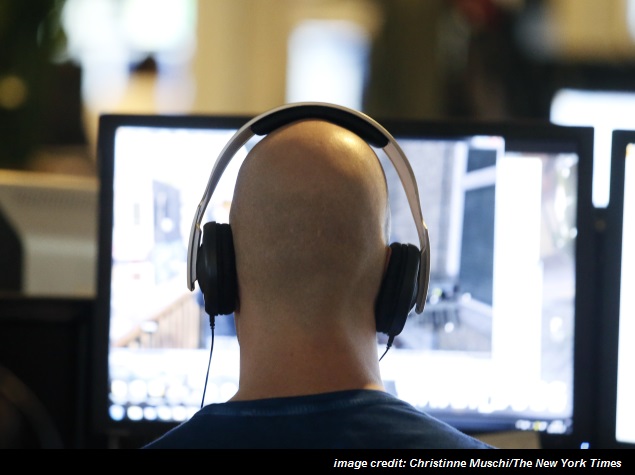- Home
- Games
- Games News
- Hackers Target Games to Find Ways to Cheat
Hackers Target Games to Find Ways to Cheat

For the last five years, hackers in China have been breaking into American video game makers' systems, collecting proprietary source code in an effort to crack the games for free use and to develop tools to cheat them, according to research by the counter threat unit at Dell SecureWorks, a security firm that Dell acquired in 2011.
In several cases, researchers say, amateur Chinese hackers have proved themselves even more stealthy and sophisticated than their military counterparts. So adept are they at covering their tracks that some have been able to maintain a foothold in infiltrated systems for more than two years unnoticed.
The new research offers a reminder that despite the continued focus on hackers at the National Security Agency and military units in Shanghai, some of the most prolific and sophisticated attacks are still the work of individual hackers.
Dell SecureWorks would not name the victims, citing nondisclosure agreements the company has with clients, but its report may help shed light on attacks against video game makers.
In the past year alone, Nintendo reported that it had been a victim of an attack in which hackers managed to gain unauthorized access to a Nintendo members-reward site 23,000 times, after some 15 million attempts.
Ubisoft, based in Montreuil-sous-Bois, France, announced that its networks had also been hacked. Japanese game maker Konami said hackers had tried to gain access to its systems some 4 million times and were successful in 35,000 cases. Crytek, a game developer, also reported a breach.
In March, a British security company discovered that an Electronic Arts server had been hacked. And in May, Bohemia Interactive, a Czech game developer, confirmed that it had been hacked after the source code for its DayZ game appeared on a game-hacking forum.
Dell SecureWorks' researchers said that in many of the cases they had witnessed, hackers conducted extensive reconnaissance on organizations before attacking They used public information to find employees with administrative privileges, then used so-called brute force means in which they deployed computers to test millions of combinations of user names and passwords to break into accounts.
From there, they used their foothold to install malicious tools, including remote access tools, backdoors and keystroke loggers, onto the computers of employees who had access to video game source code.
At first, researchers said it was unclear whether hackers were stealing source code to copy games and sell their own versions. But they were able to trace the attacks back to two hacker aliases in China. The researchers now believe the hackers are after the source code to crack the games for free use, or find backdoors that would allow them to outscore their competitors.
Researchers traced several tools to the online alias "Laurentiu Moon," a Chinese hacker who maintains accounts on hacking websites: one focused on mobile phone hacking and another focused on cracking legitimate software.
Laurentiu Moon has been a member of China Cracking Group since 2009 and AntiGameProtect since December. Both are dedicated to video game cracking.
Other tools were traced to another member of the China Cracking Group, with the alias "Sincoder." Based on the individual's Weibo microblogging profile and a Twitter account, it appears this person is in Shenzhen, China.
Efforts to reach these individuals through their online accounts were unsuccessful.
In some cases, researchers said, the tools and techniques these two individuals developed were more sophisticated than many of the so-called spear phishing attacks deployed by China's People's Liberation Army hacking units.
Researchers found that in one case they compromised a Chinese technology company's digital certificate - a mechanism used by companies to guarantee to a customer's Web browser that the site is authentic - to gain access.
The industry has done little to share such threat information. A spokesman for the Entertainment Software Association, the gaming industry's chief lobbying group, said he was unaware of any joint efforts to curb game hacking.
In most cases, game makers say it is up to the individual companies to protect themselves. Dell's Counter Threat report lists hackers aliases and tools, and details their techniques.
© 2014 New York Times News Service
For the latest tech news and reviews, follow Gadgets 360 on X, Facebook, WhatsApp, Threads and Google News. For the latest videos on gadgets and tech, subscribe to our YouTube channel. If you want to know everything about top influencers, follow our in-house Who'sThat360 on Instagram and YouTube.
Related Stories
- Samsung Galaxy Unpacked 2025
- ChatGPT
- Redmi Note 14 Pro+
- iPhone 16
- Apple Vision Pro
- Oneplus 12
- OnePlus Nord CE 3 Lite 5G
- iPhone 13
- Xiaomi 14 Pro
- Oppo Find N3
- Tecno Spark Go (2023)
- Realme V30
- Best Phones Under 25000
- Samsung Galaxy S24 Series
- Cryptocurrency
- iQoo 12
- Samsung Galaxy S24 Ultra
- Giottus
- Samsung Galaxy Z Flip 5
- Apple 'Scary Fast'
- Housefull 5
- GoPro Hero 12 Black Review
- Invincible Season 2
- JioGlass
- HD Ready TV
- Laptop Under 50000
- Smartwatch Under 10000
- Latest Mobile Phones
- Compare Phones
- Meizu Note 16
- Meizu Note 16 Pro
- Sony Xperia 1 VII
- OnePlus 13s
- Samsung Galaxy S25 Edge
- Vivo Y300 GT
- Samsung Galaxy F56 5G
- Realme C75 5G
- Lenovo Legion 9i (18”, 10)
- Alienware 16X Aurora
- OnePlus Pad 2 Pro
- Amazon Kindle Paperwhite (12th Gen)
- boAt Storm Infinity Plus
- Moto Watch Fit
- Xiaomi QLED TV FX Pro (55-inch)
- Xiaomi QLED TV FX Pro
- Asus ROG Ally
- Nintendo Switch Lite
- Toshiba 1.8 Ton 5 Star Inverter Split AC (RAS-24TKCV5G-INZ / RAS-24TACV5G-INZ)
- Toshiba 1.5 Ton 5 Star Inverter Split AC (RAS-18PKCV2G-IN / RAS-18PACV2G-IN)

















